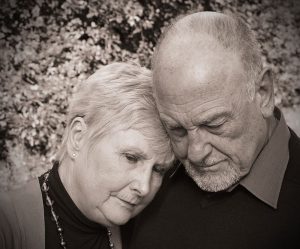TCFV – support for individuals bereaved of a child, sibling or grandchild.
As a parent, there is nothing more devastating than the death of our child. How can we possibly come to terms with the enormity of the loss? How do we learn to live without our child?
Common feelings among bereaved parents are isolation and loneliness when they perceive that ‘people don’t get it’. However, at TCFV it is possible to talk to people who know how you are feeling because they themselves have lost a child. We offer a safe place.
 The first reactions of shock, numbness, denial and disbelief help to cushion us against the full impact of the loss. It is when this protective emotional state wears off that we begin to feel our grief.
The first reactions of shock, numbness, denial and disbelief help to cushion us against the full impact of the loss. It is when this protective emotional state wears off that we begin to feel our grief.
Physical exhaustion is a very common symptom of early bereavement. It can be a mistake to waste energy on trying to be in control when you feel far from it. Be yourself whenever possible. Try to eat sensibly and rest as much as you can, even though sleep may elude you. Walks and exercise in the fresh air may help restore sleep patterns. Other relaxation techniques may help you too.
Tears are an important way to express anguish. Allow yourself to cry when and where you need to. Tears do not flow readily for some people, or they come unexpectedly at inconvenient times. It is good to let the tears flow and to learn to cope with them as best you can.
Feelings of wanting to join our dead child, and of ordinary life having no meaning, are quite common. It is possible to feel that we are going mad given our strong emotions at this time, but they are part of a normal physical and psychological reaction to what has happened.
For a long time our lost child is all we can think about. We feel empty inside as if part of us has died too. We harbour a deep desire to hold our child again and there are reminders in all we see, smell, touch and hear.
The Compassionate Friends Victoria provided a sounding board. Families and friends become exhausted with the constant emotional support they have to provide. TCFV allowed us to vent and needed no explanation for mood swings or angry behaviour. Support was there even in the dark hours of the morning.
Tensions with family and friends
The experience of our child’s death may create tensions within our marriage or partnership. The understanding that has developed over the years will be put to a severe test. We expect to be able to console each other. At times we may do, but we are also individuals needing to grieve in our way, at our own pace. We may not have the strength to comfort each other as required nor understand our partner’s grief pattern. Tolerance, affection, patience and good communication are the watchwords.
Surviving children can be the ‘forgotten mourners’ after the death of a child. They need their parents’ love most especially at this time. Excluding them from our sorrow may add to their fears and the confusion they may be feeling. A family is helped and strengthened by members who share their grief.
 We may feel hurt and angry at the insensitivity of others to our feelings and needs. Some friends and acquaintances expect us to function ‘normally’ within a short time. We feel that people are uneasy with us, avoid mentioning our child’s name, or avoid our company altogether. If we talk about what has happened, they may become tense and change the subject.
We may feel hurt and angry at the insensitivity of others to our feelings and needs. Some friends and acquaintances expect us to function ‘normally’ within a short time. We feel that people are uneasy with us, avoid mentioning our child’s name, or avoid our company altogether. If we talk about what has happened, they may become tense and change the subject.
 There will be better days
There will be better days
There are no short cuts through our grief. In the early days we are often searching for a timeframe; we want to know how long it will take. We wish someone or some thing could relieve our pain and restore the life we once had. But accepting that this cannot happen and that our child is not coming back, is part of the process of grief.
No one can grieve for us but we do not always have to grieve alone. Draw on other people – family, friends, people working in the bereavement field – to help when help is needed.
Contact us at TCFV where you can meet other bereaved parents. Role models can be important: seeing others like you who are able to get on with things (such as by helping others) gives hope and encouragement.
Contact The Compassionate Friends Victoria for more information and support
Phone (03) 9888 4944, Country Victoria Free Call 1800 641 091
Please note: We are not a crisis service. If you need immediate crisis support, contact Suicide Line on 1300 651 251 / Suicide Call Back Service on 1300 659 467 / Lifeline on 13 11 14.
